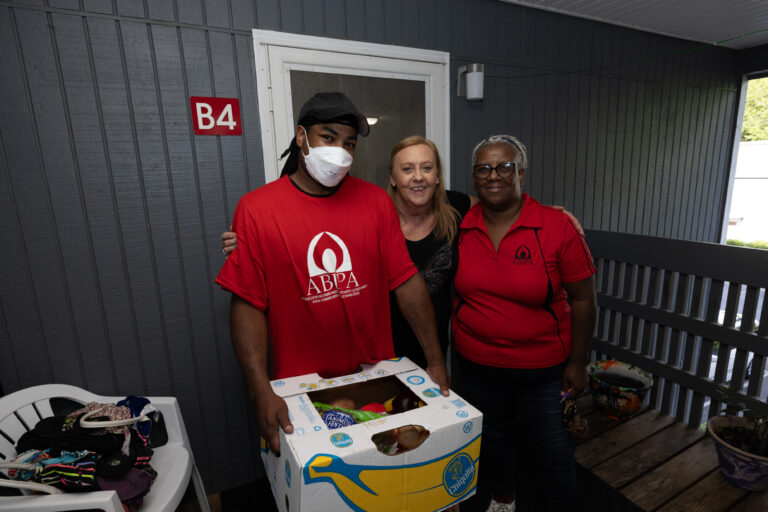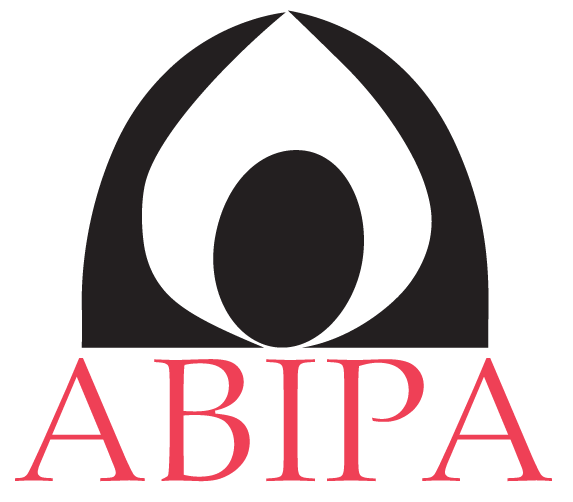Home » Partner Stories » Bridging the Gap


PARTNER STORY
Community health workers are the key to success.
Connecting with her community is something that comes easy to JéWana Grier-McEachin. She is a community health worker at heart and so are all the employees and volunteers at the Asheville Buncombe Institute of Parity Achievement (ABIPA) where she serves as executive director. Everyone at ABIPA is devoted to bridging the gap between their community and health and social services.
While individuals have supported the health of family members and neighbors for centuries, formal recognition of community health work has been much more recent and dates back to the 1970s when the American Public Health Association formally coined the term.
Here in Western North Carolina (WNC), an African American physician and community health activist, Dr. Charles Blair, founded ABIPA in 2004 with community health workers he called “parity action team members.” Today, ABIPA is still carrying out its foundational mission to “promote economic, social, and health parity achievement for African Americans and other people of color in Buncombe County through advocacy, education, research, and community partnerships.”
And now, ABIPA’s community health workers are serving HOP clients. After joining our human service organization network in 2022, ABIPA has been providing weekly healthy food boxes to clients living in Buncombe, Henderson, McDowell, and Rutherford counties. Community health workers are delivering boxes and spreading the word about the impact HOP can have on their lives.
“It gives access to the social drivers that need to be taken care of,” JéWana said. “It’s a tangible way of not just showing or telling people but coming alongside people with those choices they need to make or those environmental things they need to change in order to live healthier lives.”
Every HOP healthy food box is created with the client in mind. At the beginning of the week, clients can choose different vegetables, meats, and sides as well as request specialty items for their boxes. After client requests are considered, JéWana heads to a nearby Ingles to purchase the food, and then works with Change Your Palate, another WNC-based nonprofit, to select recipes that can be made using ingredients in that week’s box. Every step of the process is planned with the client’s care and comfort in mind.
You can see how much care goes into each box when you go shopping with JéWana. Every week, she talks to the local grocer to make sure she is aware of the latest discounts, the freshest fruits and vegetables, and the best cuts of meat.
“We have gotten feedback back from people saying, ‘thank you, this is a blessed box.’ And it is a blessed box,” JéWana said. “There is so much love that goes into it whether it’s from the food that’s selected, from the way it’s put into the boxes, or the way it’s delivered—we want people to feel that way when they get our boxes.”
These “blessed boxes” are helping HOP clients make healthier choices.
Daisy heard about HOP through her daughter. She was finding it difficult to manage her diabetes, especially when she loved nothing more than satisfying her sweet tooth with a sugary drink. After being enrolled in HOP, Daisy started receiving food boxes from ABIPA. Working alongside her community health worker, Daisy learned how to choose healthier foods. Since participating in HOP, Daisy has been able to taper off her diabetes medication and is managing her health condition.
“I love being a part of this pilot because I can really see how it’s affecting people in small and big ways,” JéWana said. “The master innovator is experience, and I’m always figuring out how to make things the best for what we have,” JéWana said.
By using community health workers to deliver food boxes, ABIPA is taking the time to learn about their clients and build trusted relationships. If a community health worker notices someone without heat or unable to use their car, they can connect them with HOP resources to support those needs as well.
“The humanity that goes along with administering [our] services is so important and something we are proud to do with our HOP clients,” JéWana said.
Stay up to date with the latest news and information from Impact Health.
Search our list of Human Service Organizations (HSOs) who provide housing, transportation, food or interpersonal safety services.

To reach Impact Health’s office, contact us at
833-614-9400 or [email protected].
For media inquiries, please contact Jennifer Caldwell at
[email protected].
Stay up to date with the latest news and information from Impact Health.